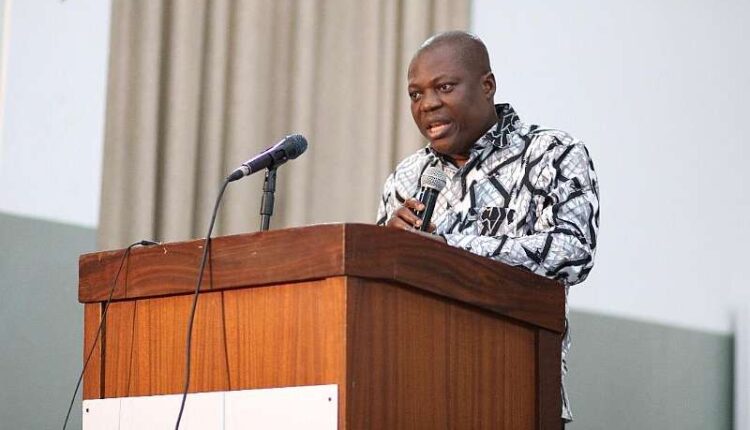Economist and Dean at the University of Cape Coast Business School, Prof John Gatsi, has cautioned government against condoning the implementation of zero-financing policy by the Central Bank.
According to him, such a move will not augur well for the activities of government, insisting that the issue has to do with whether the Central Bank shows fidelity to its own laws.
He revealed that the Central Bank and government have been violating the provisions and that can create a lot of issues.
“There’s no way in a developing country like ours that we should accept zero financing of government activities. In the past, we were using about 10% of previous year’s tax revenue but that was revised by the IMF program we had in 2021. That program was insistent that we should have zero financing but in the wisdom of the parliament of Ghana, they decided to slash it by half to make it 5%. So, I do not think we have to go to zero financing of government activities by the Central Bank…” he said.
Prof Gatsi stated that in the current instance, the violation by the Central Bank is just so “alarming and mind-boggling” to accept.
Again, he stated that if government is not able to show fidelity to its own provisions of the law that will allow inroad into Central Bank activities unnecessarily, that will undermine its activities.
Reacting to IMF’s position that what happened last year with regards to the GHC60.8 billion loss recorded by Bank of Ghana will not affect Central Bank’s ability to carry out its policy mandate, Prof Gatsi stated that he does not agree because every policy mandate has an outcome.
With this, he questioned whether the Central Bank has been able to perform its mandate effectively in terms of the appreciation of the economy.
“So, the Central Bank has been able to carry out its mandate over the period. So, let’s take from 2022 December to date – exchange rate was GHC6 to the dollar, but today we are talking about GHC11.5, inflation was near single digit, but we are talking about inflation around 43%, policy rates was around 14% but now we are talking about 30% and the lending rate you can imagine what it is…” he added.
Furthermore, Prof Gatsi contended that if the IMF maintains that the financial records is not directly related to the Bank’s ability to perform its mandate, then that is to underplay the essence of financial report. He explained that financial report provides the financial health of the institutions and the ability of the institutions to be in a growing state.
“If you look at the audit report, it was concerned whether the Bank of Ghana can be able to service its liabilities when they fall due because we are talking about a kind of insolvency, because the total liability is more than total assets. Again, we are talking about negative equities. If financial institutions like Central Bank, a regulator, has both deeper losses and at the same time negative equity – that calls for concern. So, we cannot wish away this matter.”
Excessive Lending
Meanwhile, Prof Gatsi stated that it is the activities of the Central Bank that allows the IMF to come and give support, and that the IMF statement is not necessarily siding with the Central Bank.
“If that is the case, the IMF will not be pressing for zero financing. So, the statement of the IMF has nothing to do with whether the Central Bank has been able to obey the laws and stay focused. But it is true that they have lent excessively to government, and through the debt exchange programme that has had the effect on the books”.
On the issue of IMF’s statements that the Bank of Ghana’s net equity is expected to improve significantly over time and eventually return to positive territory, Prof Gatsi revealed that such remarks should not be coming from the IMF, but rather, should be coming from the managers of the Central Bank.
“That is what we are expecting that they should come out and give us the roadmap that we believe the negative equity will turn around, reduce it by a [specific] percentage or amount by the end of this year or next year. So, you assure the public that you are able to do something to turn things around to make it positive. But the explanation by the Bank of Ghana is so insulting and arrogant that I don’t think we can bear that…”


Comments are closed.